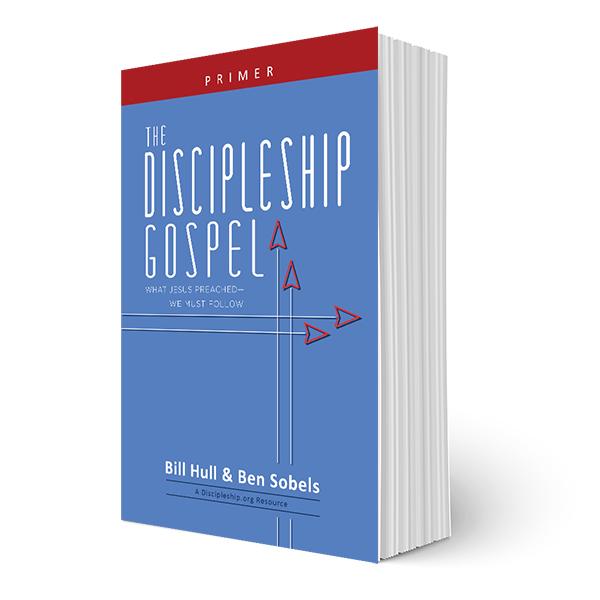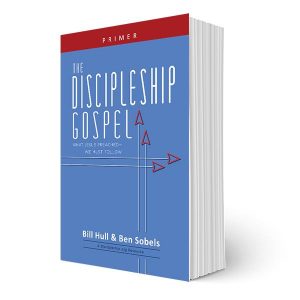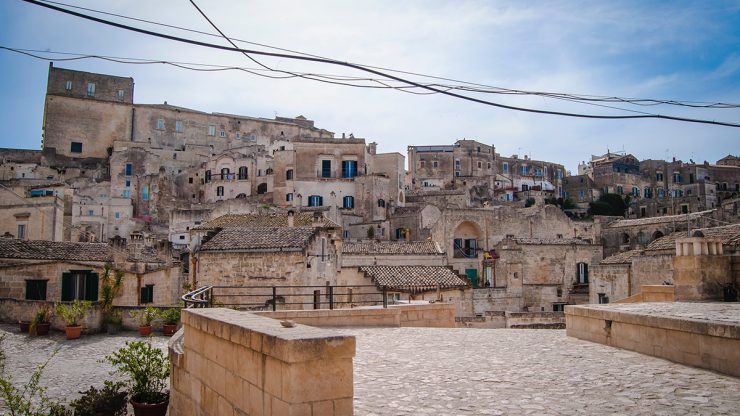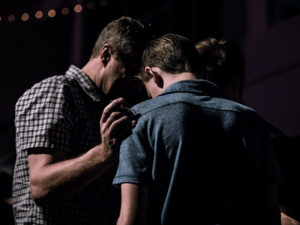What Happened to Following Jesus?
This blog is an excerpt from the free eBook, The Discipleship Gospel Primer. Download it free here.
Most of Jesus’ apostles were in their late teens and early twenties. They were products of orthodox Jewish homes and local synagogues, where they had learned the Scriptures. They were conversant with the great messianic passages from the prophets. What they knew of the kingdom came from what Jesus taught and showed them.1 To them, he was the king, the promised messiah. Right from the beginning, their actions aligned with what he advocated.
In fact, the Gospel of Mark includes the call to follow Jesus in Jesus’ earliest preaching in Galilee: “The Kingdom of God is near! Repent of your sins and believe the Good News!”2 Then they took the most logical action possible: they followed him and became his disciples.
One day as Jesus was walking along the shore of the Sea of Galilee, he saw Simon and his brother Andrew throwing a net into the water, for they fished for a living. Jesus called out to them, “Come, follow me, and I will show you how to fish for people!” And they left their nets at once and followed him.3
The disciples’ response to Jesus’ call was connected to his preaching of the kingdom. They heard his message, followed him, and became his disciples.
This is from Bill Hull and Ben Sobel’s free eBook, The Discipleship Gospel Primer. Download the eBook here in your favorite format at no cost.
Connecting Faith and Action
It’s impossible to separate belief from action. They are the same thing. When the disciples followed Jesus, they existentially made themselves his disciples. They entered into a new realm, and that’s when eternal life began for them. God’s will was being done in their lives on earth as it already was in heaven. He began to teach them how the first thing in life was always to seek first the kingdom of God:
Don’t worry about these things, saying, “What will we eat? What will we drink? What will we wear?” These things dominate the thoughts of unbelievers, but your heavenly father already knows all your needs. Seek the Kingdom of God above all else, and live righteously, and he will give you everything you need.4
For Jesus, and his disciples as they grew in their faith, the kingdom of God was central to eternal life. That’s why it was part of the good news he preached.
Through his many parables, Jesus worked out the implications of the kingdom into every facet of life. Yet the full reality of the kingdom was still somewhat of a mystery, even after Jesus’ resurrection. That’s what Luke’s words in Acts 1:6-7 reveal to us: “[The apostles] kept asking him, ‘Lord, has the time come for you to free Israel and restore our kingdom?’ He replied, ‘The Father alone has the authority to set those dates and times, and they are not for you to know.’”
Many a disciple has wanted the kingdom in all its fullness right now. Even Jesus was in the same position as his followers because he didn’t know when the kingdom would be restored. Yet he wanted the fullness of the kingdom in the present with his disciples. It’s why he cried out over the city of Jerusalem.
O Jerusalem, Jerusalem, the city that kills the prophets and stones God’s messengers! How often I have wanted to gather your children together as a hen protects her chicks beneath her wings, but you wouldn’t let me. And now, look, your house is abandoned. And you will never see me again until you say, “Blessings on the one who comes in the name of the Lord!”5
Despite Jesus’ cries, his Hebraic world said, “no” to the kingdom, and God responded, “Okay, no kingdom for you now, not yet—but I will be back!” (The church—made up of Jews and Gentiles who have become one in Christ—experiences the blessings of the kingdom, which Christ inaugurated during his first coming.) The apostles themselves were a bit confused about this whole thing and, as we saw in Acts 1 above, asked Jesus for a definitive answer at the very last moment before he ascended.
Where Is the Kingdom of God?
The main thing to remember about kingdom talk is that we don’t know very much about the kingdom. The restoration of the kingdom here obviously had something to do with military and political power. The apostles said this even though none of them could remember a time when Israel was free from the Roman yoke.
Jesus not only led people into the kingdom, but he showed it to them as he explained to the general populace and demonstrated it daily in his teachings and works. When Jesus arrived at his hometown of Nazareth, he went to the synagogue and made his announcement in a straightforward and startling way:
He stood up to read the Scriptures. The scroll of Isaiah the prophet was handed to him. He unrolled the scroll and found the place where this was written, “The Spirit of the Lord is upon me, for he has anointed me to bring Good News to the poor. He has sent me to proclaim that captives will be released, that the blind will see, that the oppressed will be set free, and that the time of the Lord’s favor has come.” He rolled up the scroll, handed it back to the attendant and sat down. All eyes in the synagogue looked at him intently. Then he began to speak to them. The Scripture you’ve just heard has been fulfilled this very day!6
It seemed as though Jesus’ fellow Nazarenes appreciated his words. In fact, they were amazed that a young man from such humble origins could be so bright, so professional. Jesus, however, was a contrarian by nature, so many rabbis would have taken in the accolades and moved on, but not Jesus. He knew them well—he knew their pride and their prejudice. So he presses into their unspoken criticism: “You will undoubtedly quote me this proverb: ‘Physician, heal yourself’—meaning, ‘Do miracles here in your hometown like those you did in Capernaum.’ But I tell you the truth, no prophet is accepted in his own hometown.”7
Of course, this statement alone wasn’t what got under the skin of the city fathers; it was his historical reference about prejudice that sparked their ire:
Certainly there were many needy widows in Israel in Elijah’s time, when the heavens were closed for three and a half years, and severe famine devastated the land. Yet Elijah was not sent to any of them. He was sent instead to a foreigner—a widow of Zarephath in the land of Sidon. And there were many lepers in Israel in the time of the prophet Elisha, but the only one healed was Naaman, a Syrian.8
This scripture implies that the citizens of Nazareth will not see the miracles done in their village because they will not honor its native son as the anointed one, the messiah. They will only get a small bit of the good that could have been theirs through humility and faith. Jesus was saying to them, “God will send me, the Son of God, to other places, where minds are open and hearts prepared.” Jesus’ accusation angered them:
When they heard this, the people in the synagogue were furious. Jumping up, they mobbed him and forced him to the edge of the hill on which the town was built. They intended to push him over the cliff, but he passed right through the crowd and went on his way.9
The kingdom of God is where God’s will is done. Jesus told the disciples that God would send him to other places, even to—and maybe especially to—Gentile regions. He would, as Elijah and Elisha did, bless the unwashed and despised Syrians because they were more open to God than the Jews.10 God’s will could not be done in Nazareth; it could, however, be done in other places—more unlikely places. Those unlikely places were the land of the unwashed, the half-breeds, and outcasts.
This blog is an excerpt from the free eBook, The Discipleship Gospel Primer. Download it free here.
NOTES
1. It should be noted that Jesus had spent over three years teaching them about the kingdom of God being near them, within them, and a reality not primarily of this world. It would, however, come to the world gradually, but eventually in full regalia after his return and the judgment.
2. Mark 1:14-15.
3. Mark 1:16-18.
4. Matthew 6:31-33.
5. Luke 13:34-35.
6. Luke 4:16-21.
7. Luke 4:23-24.
8. Luke 4:25-27.
9. Luke 4:28-30.
10. For Elijah and Elisha’s story, see 2 Kings 6:8-22. Jesus fulfilled this through the apostles, who went to the nations.
Written by Bill Hull and Ben Sobels
BILL HULL is cofounder of The Bonhoeffer Project and author of Conversion and Discipleship and The Disciple-Making Pastor. He speaks as a persevering prophet on the topic of discipleship around the nation.
BEN SOBELS is a graduate of Dallas Theological Seminary and serves as Senior Pastor at Cypress Community Church in Salinas, California. He also serves as a regional director for The Bonhoeffer Project.







